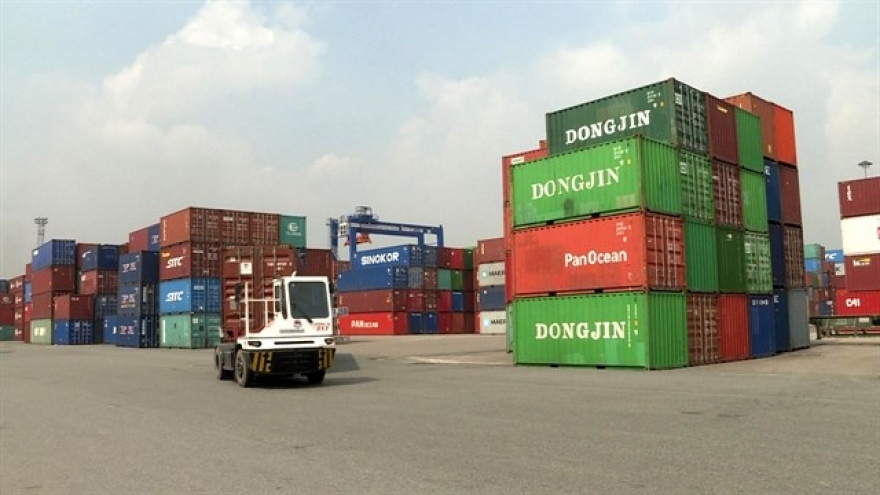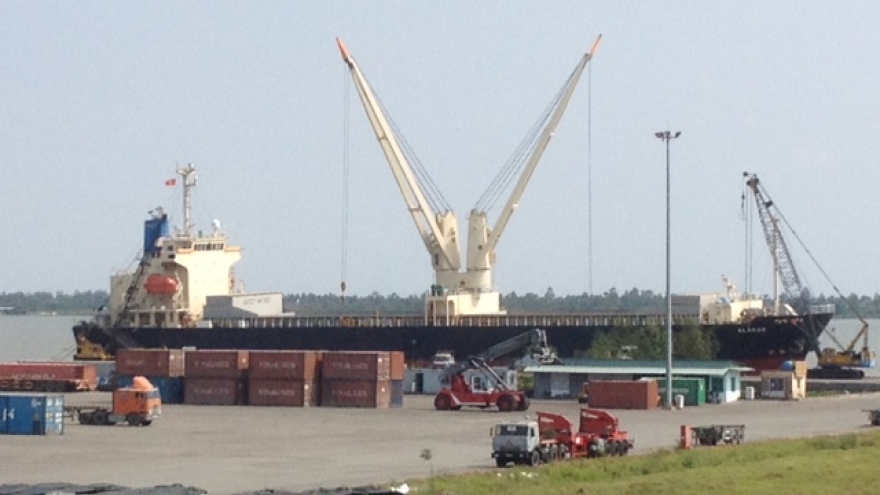Australian project seeks to boost logistics industry workforce nationwide
VOV.VN - The involvement of businesses from an Australian-funded pilot project could develop Vietnam’s logistics industry in training human resources and improve their overall occupational skillset.
 |
According to statistics released from the Vietnam Logistics Business Association, Vietnam needs 250,000 skilled logistics workers by 2030. Currently, the country has over 3,000 businesses involved in providing logistics services.
Therefore, the project to improve technical skills within the country’s workforce in the logistics industry under the Vietnam-Australia Human Resource Development Partnership (Aus4Skills), a component of the Australia-Vietnam Development Cooperation Programme, is considered a starting point to meet the human resource development goals in the Vietnamese logistics industry.
According to experts from Aus4Skills, Australia has brought in a modern training approach to work on developing occupational skills and is particularly keen on promoting business linkages in co-ordination with the Logistics Industry Reference Council (LIRC).
According to a report by Aus4skills, the number of schools that logistics lecturers reach in the linking network is seeing a marked improvement. Currently, schools can directly call in assistance from the private sector, especially from businesses that are developing and applying a suitable curriculum and training program. This can then allow the LIRC to offer support through teaching activities.
It is possible that high quality training in occupational skills can be implemented through improving the vocational capacity of schools at localities, of which some schools are members of the LIRC.
Nguyen Ngoc Tu, Chief Innovation Officer at Smartlog, said businesses often have to offer re-training when recruiting fresh candidates. If schools can equip their students with the necessary skills, businesses will save time in training employees as they already meet the job requirements.
Businesses operating in the logistics sector noted that there have been a number of changes in delivery methods. Previously, staff often used traditional delivery methods by writing telephone numbers, addresses, and checking results by hand. Currently, software is a key part of the logistics process with workers scanning bar coded items and logging their work on the system.
Due to the introduction of newer technologies, logistics staff are able to monitor the progress of goods from their offices. These changes in delivery methods are suitable among the new trends emerging in retail activities.
Nowadays, e-commerce platforms sell goods through multiple channels, so connectivity is needed to help quickly update orders and distribute goods to providers in a timely manner to ensure fast delivery.
At present, aside from large-scale units, several smaller stores have joined the e-commerce trading floor, opening up new opportunities and challenges for the logistics sector.
Over the past two years, human resource recruitment at logistics companies have undergone remarkable changes. For example, in the job description for the warehouse operator position, aside from requiring that employees have good health, diligence and are able to do overtime, businesses now require employees to acquire a knowledge of the operating system as well as a level of English proficiency.
Mr Tu said his company has 90 staff, 40 of which are involved in information technology (IT) based jobs. Therefore, employees must self-study and equip themselves with the necessary professional and IT skills.
International experts analysed that developing a professional logistics sector can contribute to bringing a higher level of economic efficiency for the nation overall. When logistics costs are reduced, the national economy will reap the benefits.
Logistics costs in the country currently make up some 20 per cent of GDP. In contrast, the costs account for only between 9 per cent and 14 per cent of GDP in developed countries. Therefore, Vietnam needs to redouble efforts to narrow the logistics costs if it is to enjoy economic development in the future.




